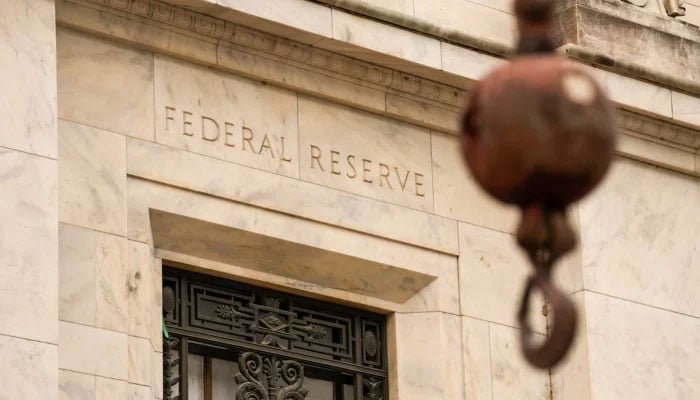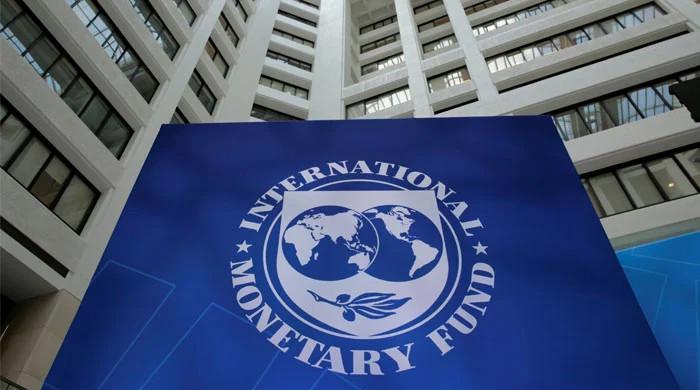Divided US Fed backs second quarter-point rate cut of 2025
Policymakers vote 10-2 in favour of lowering bank's key lending rate to between 3.75% and 4%, says Fed
October 30, 2025

The US Federal Reserve on Wednesday announced its second consecutive quarter-point rate cut to bolster the flagging labour market, in a move that highlighted the growing division in its ranks.
Policymakers voted 10-2 in favour of lowering the bank's key lending rate to between 3.75% and 4%, the Fed said in a statement.
Opposed to the action were Fed governor Stephen Miran, who backed a bigger half-point cut, and Kansas City Fed president Jeff Schmid, who "preferred no change to the target range for the federal funds rate at this meeting," the Fed said.
"We continue to face two-sided risks," Powell told reporters at a press conference in Washington.
He added that during the Fed's discussions this week, "there were strongly differing views about how to proceed in December."
"A further reduction in the policy rate at the December meeting is not a foregone conclusion, far from it," added Powell.
Wall Street stocks fell after Powell threw cold water on the prospects of a December rate cut.
Shutdown weighing on economy
The decision to cut rates boosts the US economy at a time businesses are still digesting the effects of President Donald Trump's sweeping tariffs, and buys policymakers some more time as they wait for the end of the government shutdown.
Republicans and Democrats remain politically gridlocked almost a month after the start of the shutdown, which has resulted in a suspension of publication of almost all official data.
"The shutdown of the federal government will weigh on economic activity while it persists, but these effects should reverse after the shutdown ends," Powell said on Wednesday.
"We're going to collect every scrap of data we can find, evaluate it, and think carefully about it," he added, referring to alternate forms of data published during the pause in official data. "If you're driving in the fog, you slow down."
Fed officials have in recent months flagged concerns that the labour market is cooling, causing them to shift their attention to bolstering hiring, even though inflation remains above the Fed's target.
"The Fed's rate cut is a tactical error," Moody's Analytics banking industry practice lead Chris Stanley wrote in a note shared with AFP. "The data does not support cutting rates," he continued, adding that the Fed could find itself walking the cut back in the near future due to high inflation.
"The decision to lower interest rates by 25bps (basis points) in October was never in doubt, but the unexpected hawkish dissent from a regional Fed president highlights that future moves are becoming more contentious," Oxford Economics deputy chief US economist Michael Pearce wrote in a note to clients.
"We expect the Fed to slow the pace of cuts from here," he added.
Fed to end QT
The Fed also announced Wednesday that it would soon end its policy of shrinking the size of its balance sheet, in a move that was also widely expected.
"The Committee decided to conclude the reduction of its aggregate securities holdings on December 1," the Fed said in a statement confirming its decision.
The Fed's balance sheet ballooned in the early days of the Covid-19 pandemic and has been gradually reduced in recent years.
"I think they're very cautious about stresses in the financial markets," former Cleveland Fed President Loretta Mester told AFP ahead of the rate announcement, referring to the anticipated end of the Fed's quantitative tightening policy.
"They could probably get the balance sheet down a little bit further," she added. "But I don't think there's much appetite for that."











